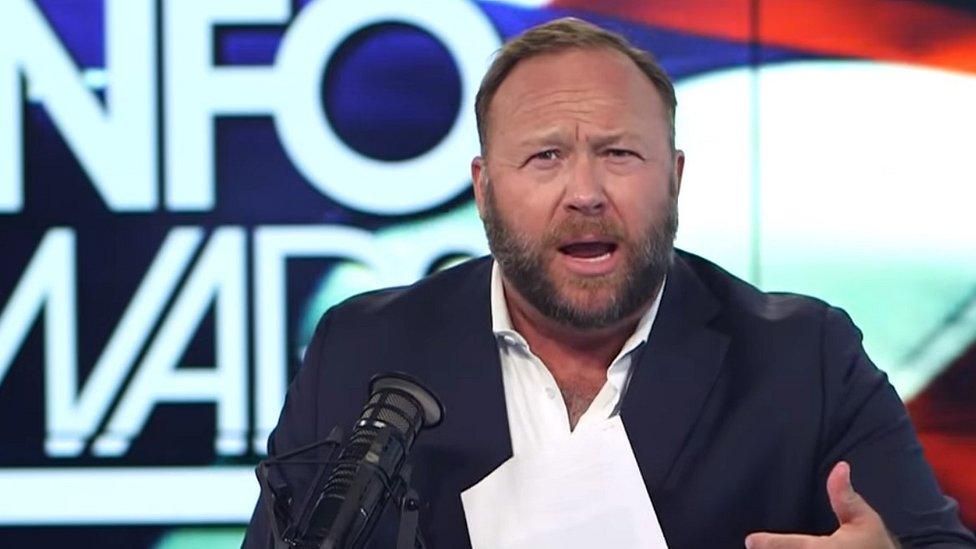Twitter in a tangle over InfoWars
- Published
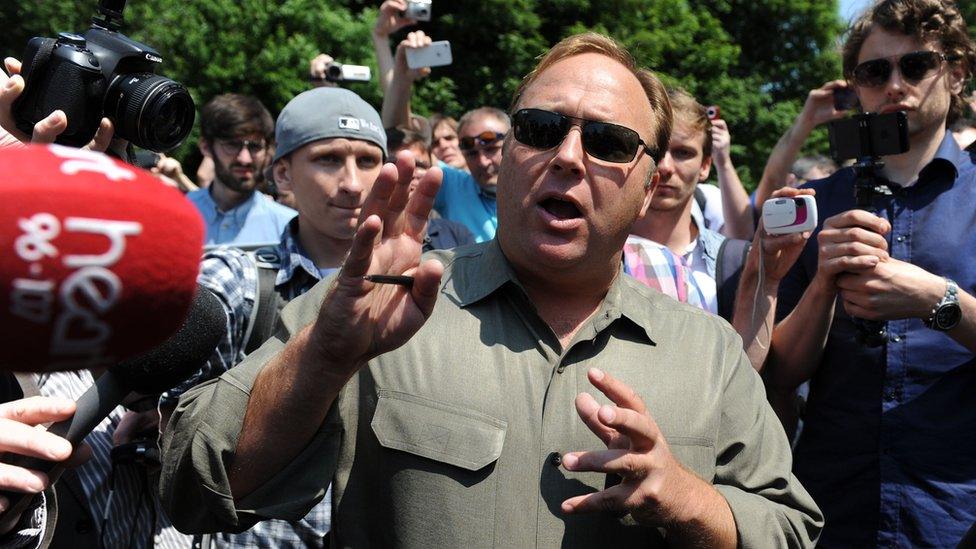
Alex Jones created InfoWars
Suddenly, Alex Jones and his conspiracy theory InfoWars brand have been wiped from just about every online platform.
It seemed that Facebook, YouTube and Spotify all hummed and hawed for days and then breathed a sigh of relief once Apple acted to remove the man who promoted the idea that the Sandy Hook school massacre had been a hoax.
But that leaves Twitter as the one big social media megaphone for Mr Jones.
In a series of tweets, the chief executive, Jack Dorsey, explained the lack of action.
First, he said:, external "We didn't suspend Alex Jones or InfoWars yesterday.
"We know that's hard for many but the reason is simple - he hasn't violated our rules.
"We'll enforce if he does. And we'll continue to promote a healthy conversational environment by ensuring tweets aren't artificially amplified."
Now, it appears that Alex Jones is more cautious on Twitter than elsewhere so may well have stayed within the social network's rules.
But what was really striking was what Jack Dorsey and the Twitter Safety team went on to say about the general principles regarding fake news and conspiracy theories on the platform.
Here's what Twitter Safety said, external: "As we have stated publicly, we strongly believe Twitter should not be the arbiter of truth nor do we have scalable solutions to determine and action what's true or false."
'Unsubstantiated rumours'
Now, this idea - that social networks cannot be held responsible when their users spread lies and do not have the resources to do the job of an editor - used to be the line trotted out by Facebook.
Mark Zuckerberg has now changed his tune, employing thousands of staff to adjudicate on complaints and teaming up with fact-checking sites.
But seemingly Jack Dorsey does have an idea for dealing with ugly rumours - leave it to journalists.
"Accounts like Jones's can often sensationalise issues and spread unsubstantiated rumours, so it's critical journalists document, validate, and refute such information directly so people can form their own opinions," he wrote, external.
"This is what serves the public conversation best."
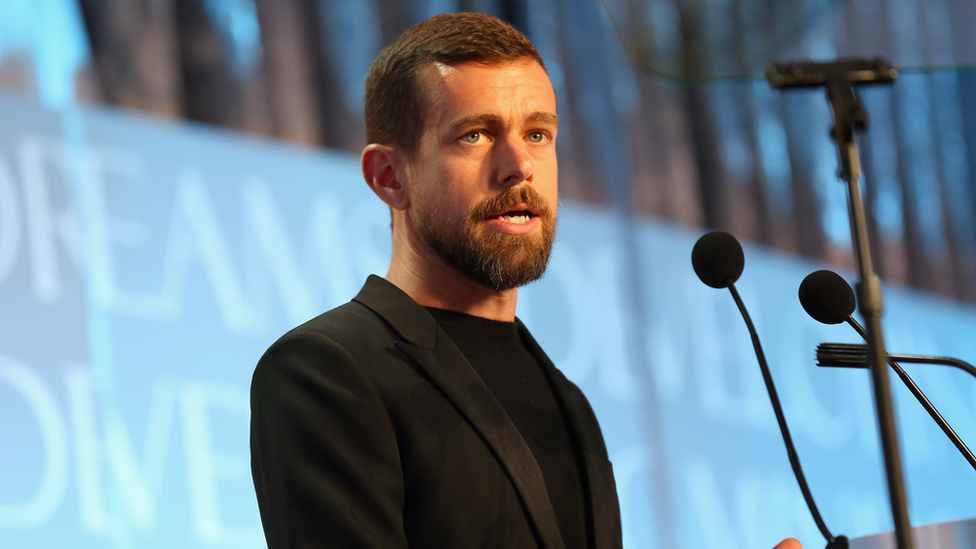
Twitter chief executive Jack Dorsey has said that Alex Jones has not violated the company's rules
Journalists were quick to point out that this was what they had been doing for years. This sardonic tweet from Tom Phillips, the editor of Full Fact, was typical of the reaction.
"He makes a really good point. If only the media had covered the Sandy Hook shooting, then there would be no unsubstantiated rumours that it was all the work of actors," it said, external.
Twitter has at least clarified its position - in the delicate balance between allowing free speech and spreading lies, it seems to have decided, for now, that freedom comes first.
That may actually win it some support from liberals who detest Alex Jones but worry about the power of Google and Facebook to decide what is allowed on the internet.
But the risk is that Twitter becomes the haven for conspiracy theorists, a place where vile rumours and hateful content can rage unchecked, however hard people who value the truth try to counter them.
If that does happen, millions may desert it for a more agreeable environment.
- Published8 August 2018
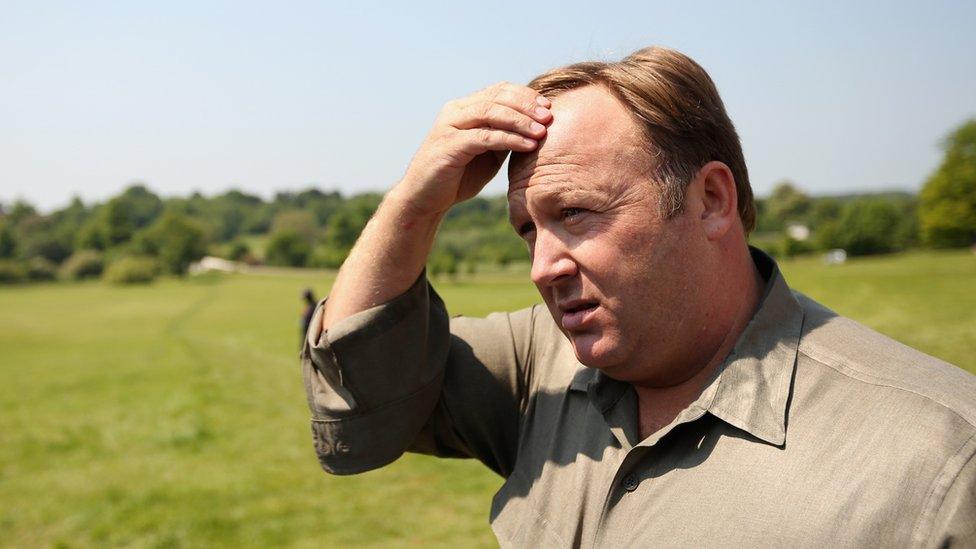
- Published27 July 2018
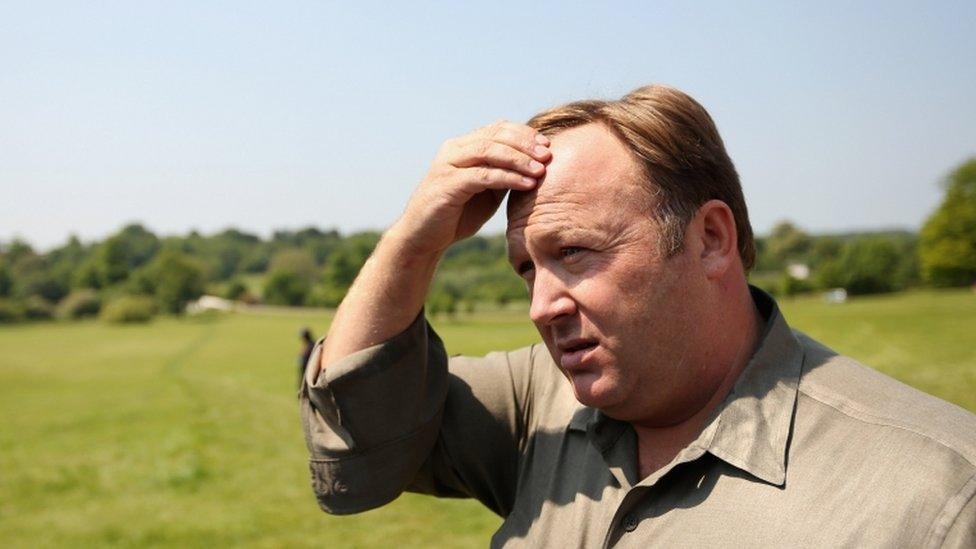
- Published6 August 2018
